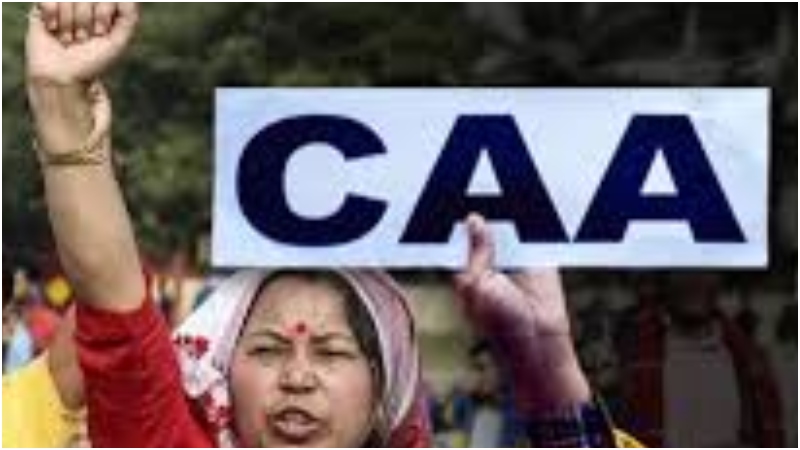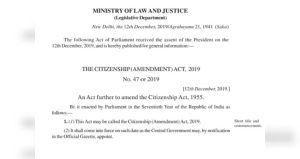
Modi government notifies Citizenship Amendment Act (CAA)
CAA proponents argue that it provides refuge to persecuted minorities
Opponents claim it undermines India's secular principles and discriminates against Muslims
The Modi government announced the notification of Citizenship Amendment Act (CAA). For quite sometime now, Union Home Minister Amit Shah had been saying that the notification would be done before Lok Sabha elections. Let’s have a look at what the CAA is all about:
CAA is a law passed in India in December 2019.
The Citizenship Amendment Act (CAA) has several key features:

Overall, the CAA has been controversial, with proponents arguing that it provides refuge to persecuted minorities, while opponents claim it undermines India’s secular principles and discriminates against Muslims.

Modi government notifies Citizenship Amendment Act (CAA)
CAA proponents argue that it provides refuge to persecuted minorities
Opponents claim it undermines India's secular principles and discriminates against Muslims
The Modi government announced the notification of Citizenship Amendment Act (CAA). For quite sometime now, Union Home Minister Amit Shah had been saying that the notification would be done before Lok Sabha elections. Let’s have a look at what the CAA is all about:
CAA is a law passed in India in December 2019.
The Citizenship Amendment Act (CAA) has several key features:

Overall, the CAA has been controversial, with proponents arguing that it provides refuge to persecuted minorities, while opponents claim it undermines India’s secular principles and discriminates against Muslims.
